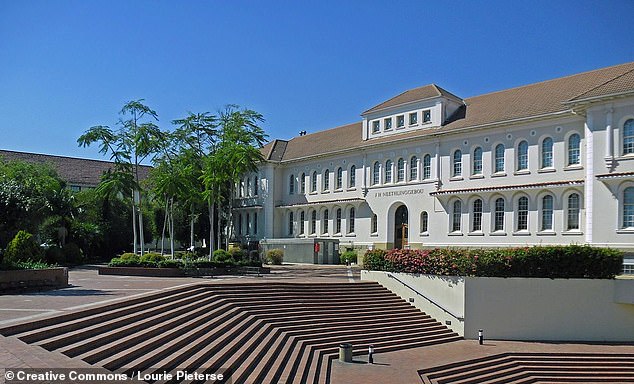Almost £30million of UK taxpayer money has been spent on fringe research projects including studies into gay porn after the Second World War and recording Syrian harvesting songs.
UK Research and Innovation (UKRI) has been given the staggering amount of funding for a number of overseas projects, which appear to have no clear benefit to British taxpayers.
The funding includes £850,000 for Birmingham City University to delve into the circulation of gay male porn and porn magazines at the end of the Second World War, a Telegraph investigation revealed.
The University of Oxford received more than £350,000 in a bid to preserve the threatened language of Enggano, spoken by just 1,500 people on Enggano Island, in Sumatra, Indonesia.
Meanwhile, £784,000 was given to the University of Exeter to build a historical account of the development of child soldiering in Africa.
It also received £307,000 of funding to revive ancestral territories, including the language and cultures of the K’omox, Pentlatch, and E’iksan in Vancouver Island, Canada, and the Maori of New Zealand.
Edinburgh University were given £123,000 to record ‘harvesting songs of displaced Syrian refugees living in Middle Eastern countries’, while the University of Warwick received almost £800,000 to study ‘invisible women in Italian cinema’.
Joanna Marchong, investigations campaign manager of the TaxPayers’ Alliance, believes taxpayers will be ‘livid’ after learning how ‘ridiculous some of these research projects have become’.

Edinburgh University were given £123,000 to record ‘harvesting songs of displaced Syrian refugees living in Middle Eastern countries’. Pictured: Syrian refugees are seen at the refugee camp in Idlib

The University of Exeter received £307,000 of funding to revive ancestral territories, including the language and cultures of the K’omox, Pentlatch, and E’iksan in Vancouver Island, Canada , and the Maori of New Zealand. Pictured: A Maori welcoming ceremony known as a powhiri

The University of Exeter was also £784,000 to build a historical account of the development of child soldiering in Africa. Pictured: Child soldiers wait in a line for their registration during the release ceremony in Yambio, South Sudan
However, UKRI said that funding will only be given to projects that show value for money for British taxpayers and have a societal benefit.
Ms Marchong said: ‘UKRI have a proven track record of wasting taxpayers’ cash on research projects that are no more than virtue-signalling nonsense that don’t stand to benefit the people paying for them.
‘Ministers need to remember why UKRI was created and return to investing in research that will make a difference to hard-working Brits.’
Another project includes a joint study between the University of Roehampton and Stellenbosch University in South Africa, which was given £2.8million in funding to research how music could help the mental health of expectant mothers in Africa.
When asked whether the study would also be used to help British mothers, the Stellenbosch University project team did not respond.
They did say that ‘group music-making has been shown to boost mood and foster social connections’ and early research shows that listening to specially composed music during pregnancy ‘reduces anxiety symptoms.’
Roehampton University also received £805,000 to recreate a performance of the 16th-century play Galatea by John Lyly centred around ‘female, trans, queer, disabled and migrants’.
While, the University of London received £323,000 to make a film-making union to assist the Mursi agro-pastoralists of the Lower Omo Valley of Ethiopia.

When asked whether their study would also be used to help British mothers, the Stellenbosch University (pictured) project team did not respond
Other projects that were given funding included a look into housing rights for marginalised citizens of Lagos and São Paulo. University of Manchester received nearly £250,000 for the study.
Around £300,000 was given to Birmingham University to ‘promote reproductive justice’ for the Pankararu and Xukuru communities in north-east Brazil.
The University of Cambridge was awarded a similar amount for the ‘restoration of traditional justice in the Sa’th Tama Kiwe Territory in Caldono, Cauca, Colombia’.
The majority of projects funded were awarded by the Arts and Humanities Research Council, part of UKRI. While, a handful fell under the National Institute for Health and Care Research.
A UKRI spokesman said: ‘International research collaboration is vital to help us tackle global challenges in a complex and interconnected world, improving security and prosperity in the UK and internationally.
‘Several of the projects highlighted were funded through Official Development Assistance, where the main benefit is required to be in the developing country involved.
‘Projects are prioritised for funding through independent expert peer review, as set out in the Higher Education and Research Act.
‘UKRI supports a diverse portfolio of investments including curiosity-driven research and strategic initiatives, which drives the creation and exploitation of new knowledge, and develops skilled and talented people for a wide range of jobs improving lives and livelihoods across the UK.
‘On average, every £1 of public R&D investment generates at least £7 of net benefit to the UK through the development of new and better goods, services and processes.’












